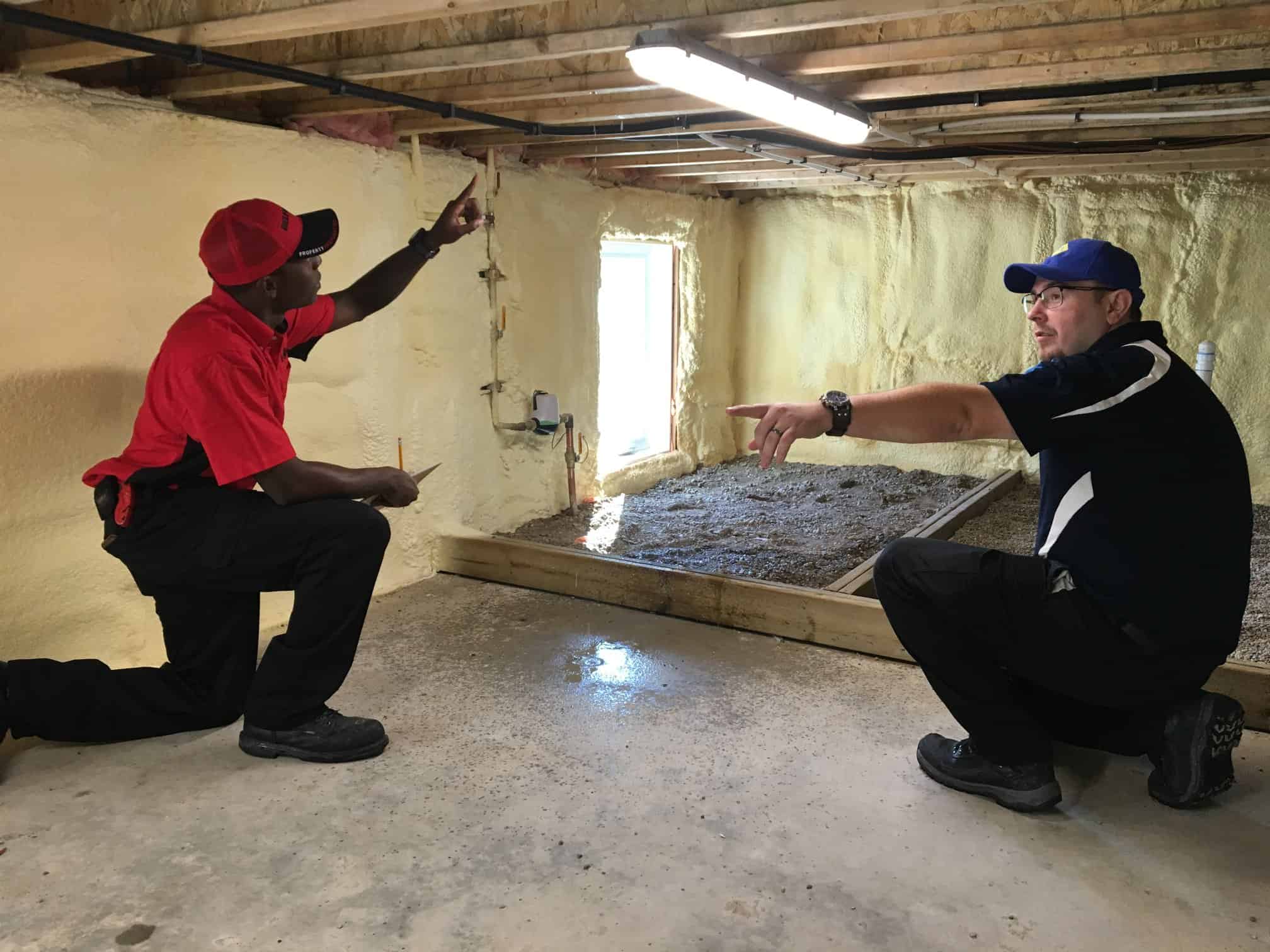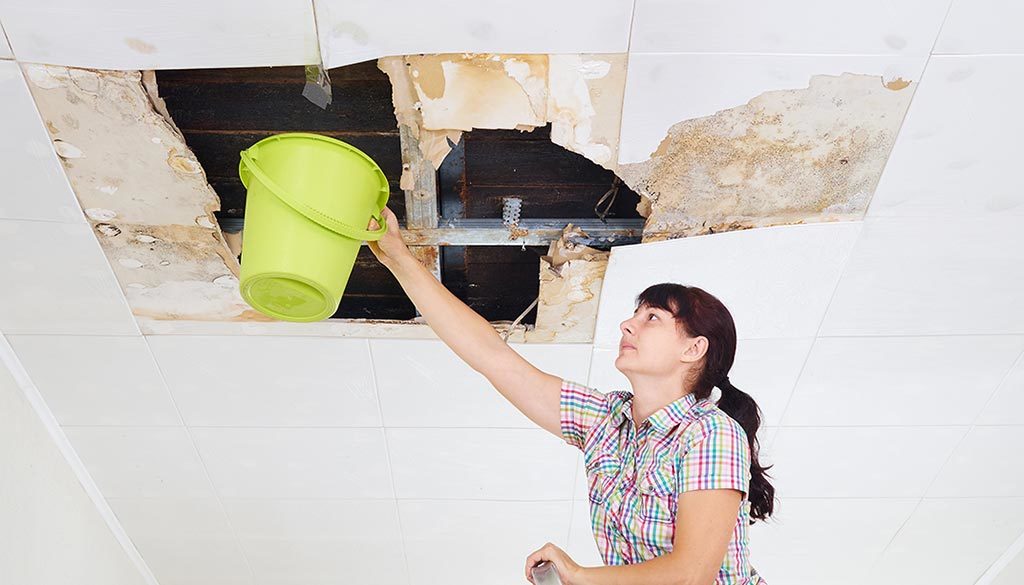24/7 Emergency Water Damage Restoration Services for Urgent Needs
24/7 Emergency Water Damage Restoration Services for Urgent Needs
Blog Article
The Refine of Water Damage Cleanup: Ensuring Your Home Is Brought Back Properly
Water damage can be a difficult challenge for home owners, demanding a organized and meticulous cleanup procedure to restore safety and security and functionality. damage restoration services. Following this, effective water removal techniques play a crucial role in reducing more damage.
Assessing the Damages
Upon discovering water damages, the initial step is to thoroughly examine the level of the impact. This preliminary examination is important, as it aids identify the essential actions for efficient cleaning and restoration. Begin by checking the affected areas, including wall surfaces, ceilings, floors, and individual possessions, to determine the source of the water breach, whether from flooding, leakages, or condensation.
Documenting the damage is essential for both insurance policy claims and preparing restoration initiatives - damage restoration services. Usage pictures and created notes to record the seriousness of the damages, keeping in mind any type of afflicted architectural components and products. Pay unique focus to areas that may not be promptly noticeable, such as behind wall surfaces and under carpets, as hidden moisture can lead to more issues, consisting of mold growth
Additionally, examine the timeline of the water direct exposure. The longer the products stay damp, the higher the potential for damage. Comprehending the duration of exposure will notify the seriousness of remediation efforts. Ultimately, a thorough evaluation lays the groundwork for a successful water damages cleanup procedure, guaranteeing that all impacted locations are attended to properly and extensively.
Water Extraction Techniques

Specialists commonly use completely submersible pumps for larger volumes of water, which can swiftly reduce flooding in basements or other impacted locations. For smaller sized amounts, wet/dry vacuum cleaners are frequently utilized to remove residual moisture from carpets and difficult surfaces. Furthermore, utilizing mobile extractors enables targeted elimination in restricted rooms or areas with delicate products.
In circumstances of contaminated water, such as sewage or floodwater, progressed removal strategies might involve using biohazard tools to make sure safety and conformity with health policies. High-powered extraction tools are crucial in reducing water retention in structural materials, which can lead to mold development and architectural wear and tear otherwise addressed without delay.
Ultimately, the efficiency of water extraction strategies plays an essential function in the overall success of the water damages cleanup process, preparing for subsequent restoration initiatives.
Drying and Dehumidification
As soon as standing water has actually been properly drawn out, the next vital stage in the water damages cleaning procedure is drying and dehumidification. This step is essential to stop more damage and mold growth, which can take place within 24 to 48 hours in moist environments.
To attain efficient drying, customized devices such as industrial-grade air moving companies and dehumidifiers is employed. Air moving companies circulate air across damp surfaces, improving dissipation prices, while dehumidifiers lower humidity levels airborne, promoting a conducive atmosphere for drying out. The mix of these tools makes certain that dampness is extracted from home furnishings, floorings, and walls, allowing them to completely dry thoroughly.
It is essential to keep track of the drying out process closely. Specialists usually use moisture meters to examine the wetness content in numerous materials, ensuring that all influenced areas get to acceptable dry skin levels. This careful method helps to avoid covert dampness pockets that might result in architectural damages or undesirable mold development.

Cleaning and Disinfecting
After the drying out and dehumidification phase is full, the next important action in water damage clean-up is cleaning up and sanitizing the impacted areas. This process is critical to avoid the development of mold and mildew, bacteria, and various other microorganisms that flourish in wet environments.
The cleaning phase usually includes eliminating any type of debris, dirt, and pollutants from surface areas making use of specialized cleaning agents. For difficult surface areas, a mix of soap and water or business cleaning products is commonly utilized. Soft materials, such as upholstery and rugs, might require extra comprehensive cleansing approaches, consisting of steam cleansing or deep removal strategies, to make certain thorough hygiene.

Sterilizing adheres to cleansing, using EPA-approved anti-bacterials to eliminate dangerous microorganisms. This action is crucial, particularly in locations that may have entered contact with floodwaters or sewer, as these sources can present serious health dangers.
Furthermore, it is very important to attend to any remaining smells, which might require using smell neutralizers or sophisticated techniques like ozone therapy. Appropriate cleaning and sanitizing not only recover the security and hygiene of your home yet additionally lay the groundwork for effective reconstruction and repair work in succeeding stages of the water damages cleaning process.
Repair and Fixings

Once the assessment is total, restoration efforts can start. This generally entails repairing or changing damaged materials, guaranteeing that all job abides with local structure codes and requirements. If drywall has actually been compromised, it will certainly require to be gotten rid of and changed with new product. In addition, floor covering may need comparable interest, relying on the degree of water direct exposure.
It is essential to engage seasoned reconstruction specialists during this procedure, as they have the competence to deal with flooded carpet complicated fixings successfully. Moreover, they can aid reduce prospective future concerns, such as mold growth or structural instability, hence making certain a safe and habitable living setting. Ultimately, effective remediation and repairs recover the home's honesty and boost its overall worth.
Final Thought
Finally, the process of water damage cleanup is vital for restoring a home to its pre-damage problem. Each stage, from analyzing the damage to carrying out effective water removal methods, complied with by extensive drying, disinfecting, and necessary repair work, plays a necessary duty in guaranteeing safety and conformity with building requirements. Efficient execution of these actions not just mitigates immediate damages yet also boosts the long-lasting stability and worth of the residential or commercial property.
Water damages can be a daunting challenge for home owners, requiring a precise and structured cleaning procedure to recover security and functionality. Ultimately, a thorough evaluation lays the groundwork for a successful water damages cleaning process, guaranteeing that all impacted areas are dealt with effectively and extensively.
Effective water extraction methods are crucial in mitigating damage and stopping additional complications complying with a water breach occasion.In final thought, the procedure of water damages cleanup is important for recovering a home to its pre-damage problem. Each phase, from analyzing the damage to executing reliable water extraction strategies, followed by extensive drying out, sterilizing, and required repairs, plays an important role in making sure safety and security and conformity with structure criteria.
Report this page